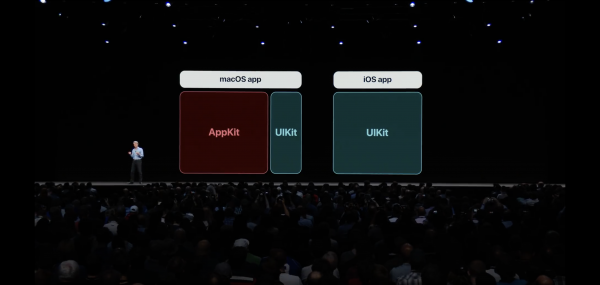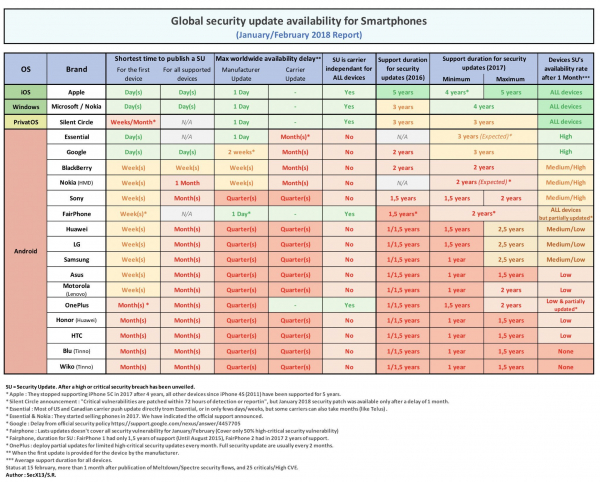
Project Marzipan →
As reported back in December by Mark Gurman in Bloomberg:
Starting as early as next year, software developers will be able to design a single application that works with a touchscreen or mouse and trackpad depending on whether it’s running on the iPhone and iPad operating system or on Mac hardware…
Developers currently must design two different apps -- one for iOS, the operating system of Apple’s mobile devices, and one for macOS, the system that runs Macs. That’s a lot more work. What’s more, Apple customers have long complained that some Mac apps get short shrift…With a single app for all machines, Mac, iPad and iPhone users will get new features and updates at the same time…
Apple is developing the strategy as part of the next major iOS and macOS updates…Codenamed “Marzipan,” the secret project is planned as a multiyear effort that will start rolling out as early as next year…
Simply put, Apple is taking key foundations of iOS and putting it in macOS in an effort to inject the abundance of iOS developer enthusiasm from mobile into desktop.
As I've talked before, this comes at a really interesting time for desktop computers:
- iOS apps are still a booming business
- Android apps continue to grow in revenue
- cross-platform desktop apps based on Electron are growing popular
- Progressive Web Apps are a rising technology that will bring the massive reach of native-like web apps to all devices
These trends all point to one big question — what is the future of desktop apps?
Services like Facebook, Twitter, Instagram, and Amazon will never need the full-blown robustness of a native Mac/Windows desktop app; they'll be able to get by just fine as Progressive Web Apps, especially since Chrome OS and Windows are pushing so hard for the technology.
But what happens to Facebook, Twitter, Instagram, and Amazon when they get much better user engagement when they port their iOS apps to Mac?
Desktop apps will always be more powerful than mobile apps. And mobile apps will always be more powerful than Web Apps. But maybe, if this Marzipan thing gains traction, the future of mobile & desktop ends up being three main platforms — Marzipan for iOS & Mac, Android for non-iPhones, and then Progressive Web App for literally everything else.
The Only Conclusion for Apple Criticism →
I really wish I was exaggerating, but these seven reasons are the main ways Apple critics attempt to explain why someone would choose to buy products critics believe are both overpriced and inferior to their competition. Because if you’ve already come to the conclusion that Apple products are overpriced and inferior, but hundreds of millions of people still buy them, the only conclusion must be that there is something seriously wrong with the people who buy them.
China: The Face-Scanning Dystopia →
China is rife with face-scanning technology worthy of Black Mirror. Don’t even think about jaywalking in Jinan, the capital of Shandong province. Last year, traffic-management authorities there started using facial recognition to crack down. When a camera mounted above one of 50 of the city’s busiest intersections detects a jaywalker, it snaps several photos and records a video of the violation. The photos appear on an overhead screen so the offender can see that he or she has been busted, then are cross-checked with the images in a regional police database. Within 20 minutes, snippets of the perp’s ID number and home address are displayed on the crosswalk screen. The offender can choose among three options: a 20-yuan fine (about $3), a half-hour course in traffic rules, or 20 minutes spent assisting police in controlling traffic. Police have also been known to post names and photos of jaywalkers on social media.
The system seems to be working: Since last May, the number of jaywalking violations at one of Jinan’s major intersections has plummeted from 200 a day to 20. Cities in the provinces of Fujian, Jiangsu, and Guangdong are also using facial-recognition software to catch and shame jaywalkers.
Virtual Wearables Demo →

Study: iOS Security Updates are Best in Industry →
SecurityLab shared their analysis of smartphone manufacturers' security updates, focusing on four specific questions:
- The shortest time to publish a security update following discovery of a vulnerability
- The maximum delay in making the update available to all
- Whether or not updates were independent of carriers
- How long a device is supported with security updates
The top-rated brand was Apple, scoring green in all categories. Of Android brands, just two scored reasonably highly.
Apple's had an embarrassing rough patch of bad software bugs in the past few months, but they're the fastest in the industry at patching it up.
Study: Apple Maps vs. Google Maps. vs. Waze →
Artur and his wife spent most of 2017 testing the top three navigation apps to answer three questions:
- Which navigation app estimates the shortest travel time?
- How does each app over/underestimate travel times?
- Which navigation app actually gets you to your destination most quickly?
After 120 trips that required the two leaving the same origin to get to the same destination, his numbers came to the final conclusion:
If you want to get to your destination most quickly, use Google Maps.
If you want an accurate prediction from your navigation app to help you arrive at your destination on time, use Apple Maps.
If thinking you’ll get to your destination quickly helps to ease your commuter anxiety, use Waze.
What is the Future of Mac Apps? →
The rumor of Apple converging iOS and macOS is starting to make a whole lot of sense.